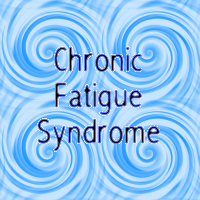Q: What is the difference between FMS and
CFS?
A: Some doctors think Fibromyalgia Syndrome and
Chronic Fatigue Syndrome are the same illness. In order to be diagnosed with FMS, you have to have widespread pain in
all four quadrants of the body for a minimum duration of three months and at least 11 out of the 18 tender points. About 75% CFS-diagnosed patients meet the FMS criteria. In some people they appear to be over-lapping, but others may only
have the symptoms of just CFS or FMS.
Q: How long can CFS last?
A: Chronic Fatigue Syndrome can last years
and years-- over 20! The younger you are when you are diagnosed with CFS the more likely you are to fully recover--
and sooner!
Q: Is there a cure for CFS?
A: No. There is no medicine either. However, you can treat the symptoms.
Q: I'm tired all the time. Can I have Chronic
Fatigue Syndrome?
A: Well, it's not that simple. The diagnosis
has to be made by a doctor who has followed your history for at least 6 months. Then you have to meet the CDC's definition.
Q: Is CFS like Mononucleosis?
A: At first it might feel like Mono, but it is
different. There is a definite lab test for Mononucleosis, but there is not for CFS. Mono sometimes is a trigger
for CFS.
Q: Is Chronic Fatigue Syndrome contagious?
A: No. In some families, though, it is genetic.
Q: Can you die from CFS?
A: No, but many people with CFS have other things wrong with their immune
systems. CFS can also cause complications.
Q: How do you get CFS?
A: Well, the cause of Chronic Fatigue Syndrome is unknown, but there
are many viruses and things, such as high stress, that can trigger CFS.
Q: Can people with Chronic Fatigue Syndrome do
normal, everyday activities?
A: Yes, they can do normal activities. However,
they probably can't do them every day. Some days, it can be too tiring to even get out of bed to eat. On other
days, walking in the mall or even a little roller blading might be possible. After an active day or two, though, there's a
good possibility of a relapse.
